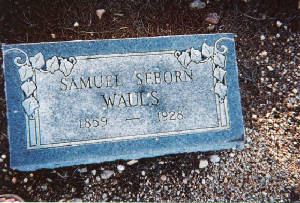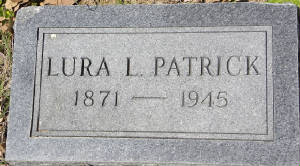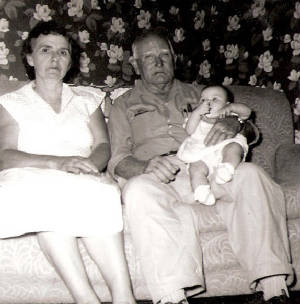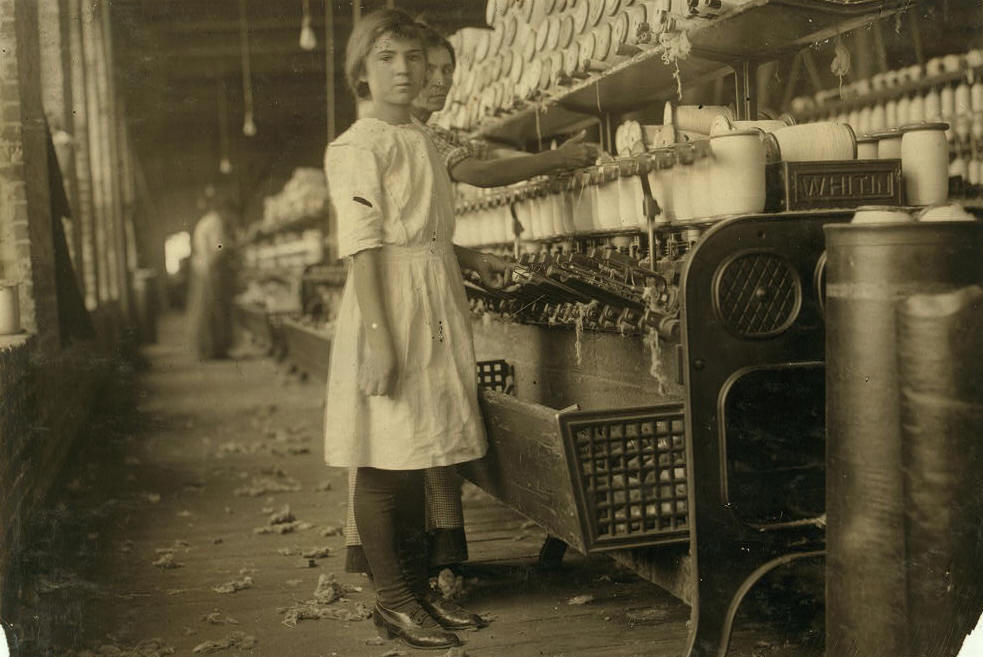
Lewis Hine caption: Twelve year old Selina Wall working at spooling in the Brazos [?] Valley Cotton Mill, West, Texas. Their family Record says she was born, March 23, 1901. Her mother said: “She’s just taking the place of her sister fifteen years old. Selina could earn a dollar a day. She was raised up in a cotton mill over in Belton, but she has to stay home and do the cookin.” The mother and the fifteen year old girl work regularly in the mill. Several older boys work. Selina keeps house. Nine in the family. Location: West, Texas, November, 1913.
“She was 18 when I was born. Everybody in town used to tell me how beautiful she was.” -Hazel Snyder, daughter of Selena Walls
“I never went into the cotton mill, but my older sister Hazel did. She said it was horrible in there, that there was lint in the air everywhere.” -Sylvia Reid, daughter of Selena Walls
“My mother was a wonderful person. We lived about a block from the railroad tracks, and I can remember hoboes coming up and knocking on the door and asking for food. Even though we didn’t have a lot to eat ourselves, my mother would make them a sandwich and have them sit out in the back yard. She was always willing to share whatever she had.” -Johnie Barefield, son of Selena Walls
“Texas has the shortest and most meager child labor law in the United States. It provides that children under fifteen years of age shall not be employed in manufacturing or industrial enterprises where dangerous machinery is used; nor in places where goods are manufactured for immoral purposes; nor where their morals will be debased or health impaired. But so far as these provisions go I believe that conditions in Texas would compare favorably with any other state. We have eighteen cotton mills in Texas, of which I think thirteen were in operation last season, and I do not believe there was a child under fifteen in one of these mills.” -J. A. Starling, State Commissioner of Labor (Texas), Child Labor Bulletin, published February 1914, by the National Child Labor Committee.
Despite Mr. Starling’s rosy assessment, Lewis Hine, in his brief visit to the Brazos Valley Cotton Mill, found at least five children working under the legal age. He took four photographs of 12-year-old Selena. In the one above, her mother (a family photograph obtained later confirmed that the woman was her mother) appears to eye the camera warily, maybe defiantly, in contrast to her daughter, who looks almost expressionless, or perhaps sullen. Her mother’s comment (“She’s just taking the place of her sister fifteen years old.”) was probably viewed with skepticism by Hine, an experienced investigator who had heard similar claims many times before. But the mother’s next comment (“She was raised up in a cotton mill over in Belton, but she has to stay home and do the cookin.”) indicates that whatever the truth was, Selena was not in a happy situation. But with just the photo and brief caption to work with, I didn’t really know anything; I could make only shaky assumptions. What I did know was at the moment I discovered the photos, there wasn’t anything I wanted to do but find out what happened to Selena. So I dropped everything else I was working on and began my research.
I first tried the census, but I could not find Selena or her family in any of the censuses up through 1940, the last one available to the public. But then I stumbled upon a 1915 Texas marriage record for Selina Wall and Wm. M. Barfield, of McLennan County, where the town of West is located. I went right back to the census and found the Barfields living in Waco (also in McLennan County) in 1940. They had five children, including 9-year-old Lonnie. I found his birth record right away, and his parents were listed as Lula Slena Walls and Makie Williana Barfield. But I could not locate the addresses or phone numbers of any of the five children. I also could not find Selena’s death record.
I contacted the editor of the local paper, the Waco Tribune-Herald, and asked if she would consider publishing the photo of Selena and an article about my research, in hopes that a descendant would contact me. She agreed, and three weeks later, the photo appeared under the headline: “Brazos Past: Searching for kin of 1913 West child laborer.” The story, written by Ms. Terri Jo Ryan, began:
“Lula, a stoic 12-year-old Texan, stares at the photographer who came…almost a century ago to take pictures of workers at the decade-old cotton mill in the small community of West. Researcher Joe Manning…seeks the help of Tribune-Herald readers to more fully identify the solemn child in the photograph.”
Within hours, I received a call from a friend of one of Selena’s daughters, Sylvia Reid. She gave me Sylvia’s phone number. But before I had a chance to call her, I received the following email from Sylvia’s son, Robert Reid.
“My name is Robert Reid. I am a grandson of Lula Walls Barefield, and this is in response to the article in the Waco Tribune yesterday. You should be able to obtain a wealth of information about this dear lady. Her married name was Barefield, not Barfield. She had nine 9 children, of which 6 are still alive. My mother, Sylvia Reid, would be the best place to start for information. She is 87 years young, but her memory is crystal clear. The next best source would be her older sister Hazel, who is 92 and also has a sharp, clear mind.”
“My grandmother’s story is so much more than just about child labor reform. Hers is a story of child abuse, poverty, and a struggle to survive, but most of all about a love affair between her and my grandfather, William Maxie Barefield. She would routinely be kicked out her house as young as 8 or 9, and would walk to any relative that would take her in. She was taken out of school when she was 8 and forced to help her mother in the cotton mill in Belton, Texas, prior to moving to West. My grandfather married her when she was just 14, and saved her from her horrible environment, and loved and cared for her until the day she died in 1979.”
“Thank you so much for your interest in my grandmother’s life.”
Over the next month, I interviewed four of Selena’s children, one of whom sent me many photos of Selena, her parents, her husband and her children. I also did considerable research on the family’s history, child labor in Texas, and the Belton Cotton Mill and Brazos Valley Cotton Mill where Selena and her family worked.
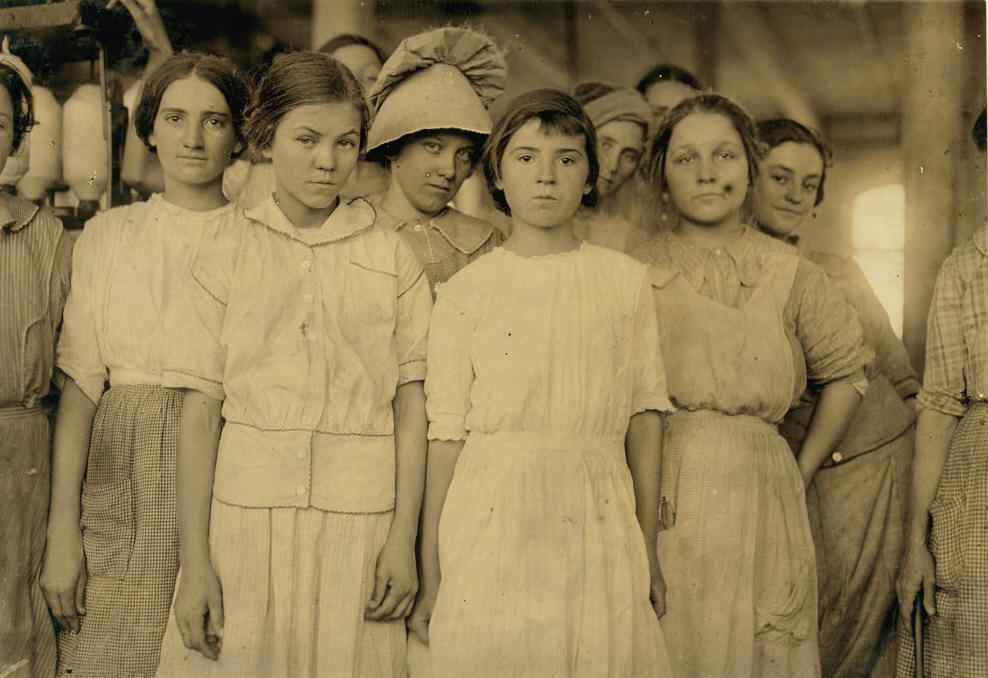
Lewis Hine caption: Group of workers in cotton mill at West. Two of them are under legal age. One is twelve and one is fourteen according to their Family Record. Much illiteracy here. Location: West, Texas, November 1913.
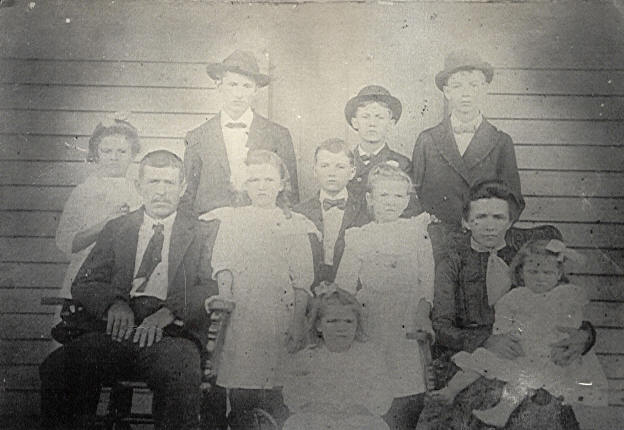
Samuel Seborn Walls (originally Wauls), born in Georgia in about 1859, and Lura Louisiana Duke, born in New Orleans in 1870 or 1871, were married in Freestone County, Texas, on December 16, 1885. Samuel was 26; Lura was only 15. They had been residents of the area for at least five years, and lived no more than a mile or two from each other on farms just west of Fairfield, about 30 miles from West and Waco. Fifteen years later, according to the 1900 census, they were living in Belton, a town surrounded by cotton fields, about 60 miles south of West. Samuel was a day laborer, probably on cotton farms. They had seven children, ranging in age from two to 11. None could read or write.
On March 23, 1901, Lula Selena Walls was born. Seven months later, the Belton Cotton Mill opened, and it is likely that Samuel went to work there right away. His older children would soon follow him into the mill, as did Mrs. Walls, probably after she had their final child, Odelia, in 1903. By 1909 or 1910, Selena was working at the mill. Around that time, Samuel and Lura divorced, and Lura met Alonzo Oliver Patrick, with whom she began to live (they married in 1916). Shortly after, they moved to West, where Selena continued to work, this time at the Brazos Valley Cotton Mill, along with her mother, her 15-year-old sister Annie and other siblings as well.
But according to Selena’s children, Alonzo did not want Lura’s younger children in the house, so Lura sent Selena and Odelia to live with whoever would care for them, mostly their older sisters, Beulah and Mary. In November of 1913, Lewis Hine walked into the cotton mill in West and encountered Selena and her mother standing by a spinning frame. Two years later, on November 21, 1915, Selena, then 14, married 24-year-old William Maxie Barefield.
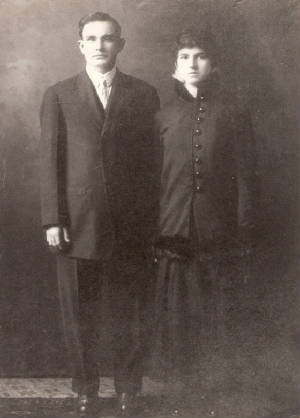
Mr. Barefield, known as Maxie (and later Max), was born in Crockett, Texas in 1891. He was the son of William Barnett Barefield, born in Texas in 1850; and Willie Barefield (maiden name unknown), born in Louisiana in 1863. According to the census, he was living in Houston in 1900, and in Rising Star (TX) in 1910. Soon after, Maxie and his parents moved to West, and lived very near to Selena and her family.
In 1920, Selena and Maxie, now married five years, were living in Corsicana, about 50 miles northeast of West. Maxie worked in a cotton mill, most likely the Corsicana Cotton Mill. They had one child, Hazel, less than one year old. Maxie’s widowed father was living with them. His wife had died in 1915, and he was to die in 1923. In 1930, Selena and Maxie were living near Itasca, about 20 miles north of West. Maxie’s occupation was listed as a farmer. In 1940, they were living in Waco, where Maxie worked as a barber supply salesman.
Selena’s father, Samuel Walls, died in Belton in 1928; and her mother, Lura (then Mrs. Alonzo Patrick), died in West in 1945.
Lula Selena Walls Barefield passed away in West on October 11, 1979, at the age of 78. Her husband Maxie passed away in Waco two years later, at the age of 89.
Excerpts from an interview with Hazel Snyder (age 93), daughter of Lula Selena Walls. Interview conducted by Joe Manning on October 31, 2012.
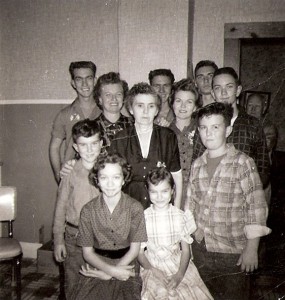
“I was very surprised and pleased to see a picture of her. She was 18 when I was born. Everybody in town used to tell me how beautiful she was. I just took it for granted that she worked in the mill when she was a child, because they didn’t have any child labor laws. My grandmother had nine children. She and her husband were divorced, and she didn’t have a way to make a living and support them, so they all worked in the mill.”
“She tried to make it on her own, but then she met my step-grandfather. He was a young man who had never been married. He married her, but he didn’t care for the children, so my mother and her younger sister had to find somewhere else to go. My mother was about nine when she had to move out. She stayed mostly with her older sisters. She’d stay with one for a while, and then stay with another.”
“At 14, she met my father (William Maxie Barefield), and they got married. His father lived with them for a while. He was called Bill. He stayed with them until he died. My mother had two children before me, but they died. When I was a little girl, my father rented a little farm. My mother stayed at home and helped my daddy on the farm. We were poor. I think everybody was at that time, but we always had enough to eat. After I grew up and left home, my mother went to work in the mill again.”
“My daddy was called Maxie. Later in years, he was called Max. He was a real gentleman. He loved children, and he loved people. He was very outgoing. He developed a bad rupture (hernia) and couldn’t get a job anywhere, so he did the best he could. That’s why my mother had to work. At that time, they wouldn’t accept any help from anybody.”
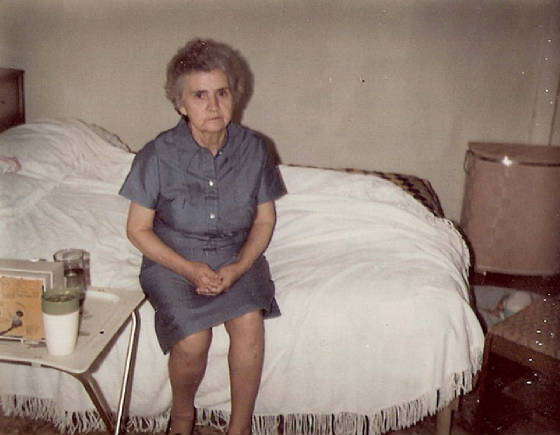
“My mother had a bad heart attack when she was 51. She never really got over it. The doctor told her she could not do anything. She couldn’t work, she couldn’t sweep, and she couldn’t clean the house. One day, she decided that she felt pretty good, so she started scrubbing the back porch, and she had a stroke. She was paralyzed on her right side. From then on, she couldn’t talk. She finally went into a rest home.”
“My daddy found a job as a night watchman at a cotton gin. He lived alone. Later on, Daddy sold the house and moved in with her at the rest home. They both died there. They loved each other very much. My mother just lived for her children. She loved all of them very dearly. She didn’t socialize with anyone else much. She was reluctant to even go to the store. My daddy did that. She seemed like she was satisfied just to be with her family. She was a very quiet, gentle person. She didn’t like to talk about her troubles.”
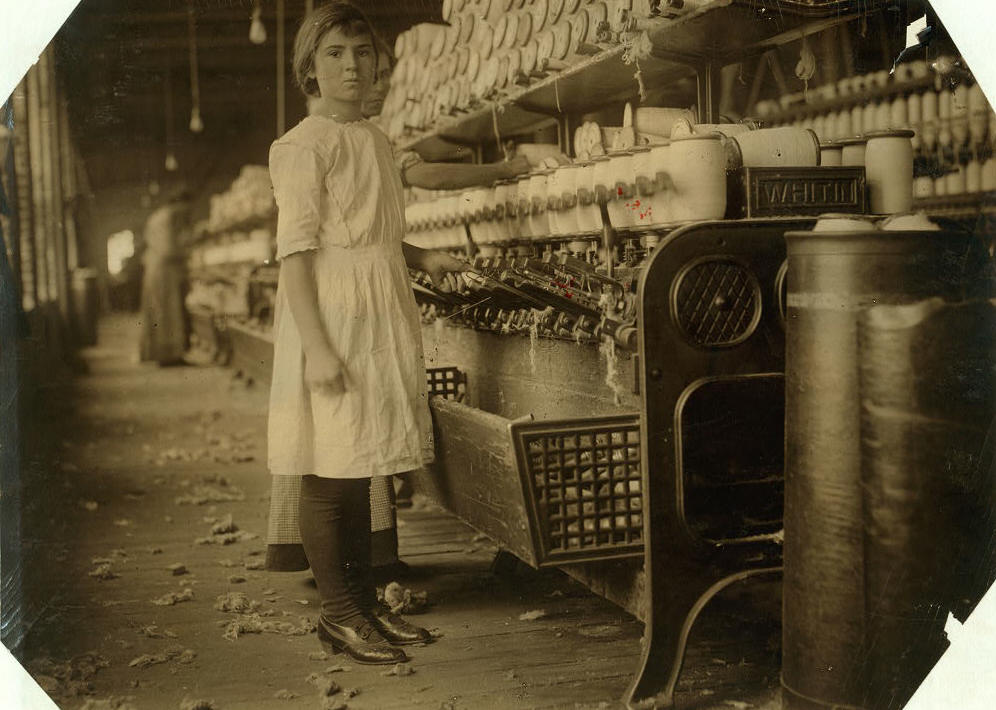
Excerpts from an interview with Sylvia Reid, daughter of Lula Selena Walls. Interview conducted by Joe Manning on October 30, 2012.
“I was delighted when I saw the picture of my mother, but then I teared up, both tears of happiness and tears of sadness. I never went into the cotton mill, but my older sister Hazel did. She said it was horrible in there, that there was lint in the air everywhere. Hazel told me that Daddy said that Mother went to work in the mill when she was nine. I don’t know how my mother survived that many years. She worked till she was 53. She had a very hard life, all the way to the end.”
“She had a very inhuman person for a mother, and it was terrible. My daddy told me that. Her mother was so hateful and mean to all the grandkids. When my mother was just a little girl, she was kicked out of her home. My dad’s mother and father had a house in West. My daddy lived there with his parents. My mother’s sister, who was also working in the mill, rented a room there, so my mother stayed with her.”
“I was born in 1925. At that time, we were living in my grandmother’s house. At that time, families had to live together, good or bad. My mother was so kind and good to her when she was old. My heart just bled for her. She treated her mother with respect and love, even though she had been so mean to her. We rented various houses up and down that street. My daddy rented the house next door at one time, and another time rented a house across the street from my grandma. I got married at the age of 16, and that’s when I left my home. My parents were living in Waco at the time.”
“My mother had a very severe heart attack at age 53, and she was in the hospital a long time. Of course, in those days, treatment was very limited. They didn’t have the medications and surgeries they have now. So she probably had to live with a damaged heart. She lived the last 10 years of her life in a nursing home. It was so sad. She couldn’t talk, because she had had a stroke, but her mind was still okay.”
“She loved her home so much. My poor little mother would look at me with those sad eyes and hold her little hand up toward her home. She knew what direction it was in.”
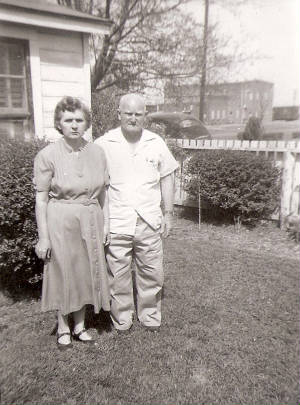
“My mother was always very pleasant, very optimistic, never talked ugly or mean, never used a curse word, and was so kind to me all my life. Their income was barely enough to live on. We didn’t have much when I was growing up, but we always had Mother and Daddy at home, and we always had a meal and a roof over our heads. My mother made all of our clothes. She loved her family with all her heart. They never went anywhere for entertainment. Her entertainment was just seeing her children happy and fed. She was satisfied with that.”
“My daddy had a double hernia. That made it difficult for him to work. And anytime he filled out a form to work, he didn’t have the kinds of skills that made it easy for him to get a good job. His skills were farming, and breaking wild horses, which he did as a young man. My mother’s work is how we were able to survive.”
“My daddy was a wonderful person. He always thought my mother was beautiful. He loved her long, thick black hair. Back in the 1930s, when all the women were starting to get their hair bobbed, she had hers done that way, and it almost broke his heart. Anytime she needed or wanted something for the house, she would discuss it with him. And Daddy would always say, ‘Now, Momma, let’s don’t get it this week, let’s wait till next payday.’ Then after she waited a week or two, she would go get it anyway. She had a pretty determined mind.”
“Daddy helped take care of the home when she was working. He took care of the kids, cooked the meals and scrubbed the floors. He drove her back and forth to work. They would always keep beer in the refrigerator. When Daddy would go pick her up at work, they would come home and sit at the table and split a beer and eat some cheese and crackers. He made life as pleasant as he could for her. He loved my mother to the end. When she died, I brought Daddy home with me. He was in the bedroom, and I walked by and heard him say to himself, ‘I’ll never be able to hold her in my arms again.’ He was the most wonderful thing that ever happened to my mother.”
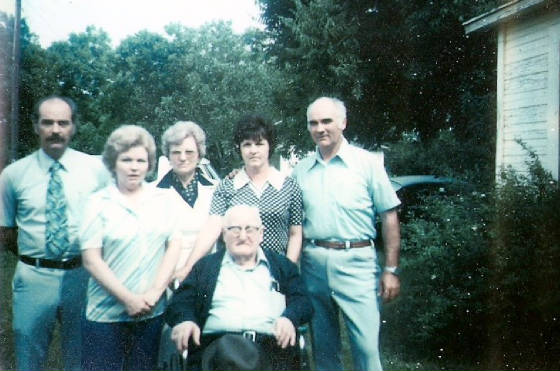
Excerpts from my interview with Shirley Schoen, daughter of Selena Walls. Interview conducted November 1, 2012.
“My daddy had a charge account at the grocery store in West, and he would go and buy what he needed, and then at the end of the week, he would go pay his bill. The man at the grocery store would give him one beer. He would drink one beer a week. Sometimes he would bring the beer home, and he and Mama would sit at the table and split it.”
“I was always teasing my mother. For instance, she would be sitting at the table drinking a cup of coffee, and I’d put my arm around her shoulders and say, ‘Mama, I want you to tell me who my daddy is. I know I don’t belong to this family because nobody in the family is like me.’ And she would say, ‘You shut that up; you know better than that.’ But it would make her laugh. She knew I was joking”
“My mother had a big quilting frame at home. She did a lot of quilting when she was sick. It kept her busy.”
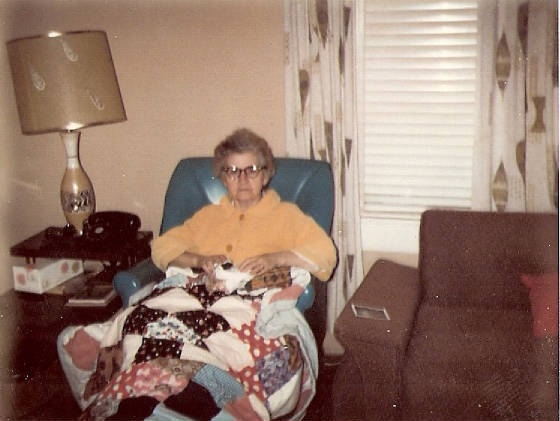
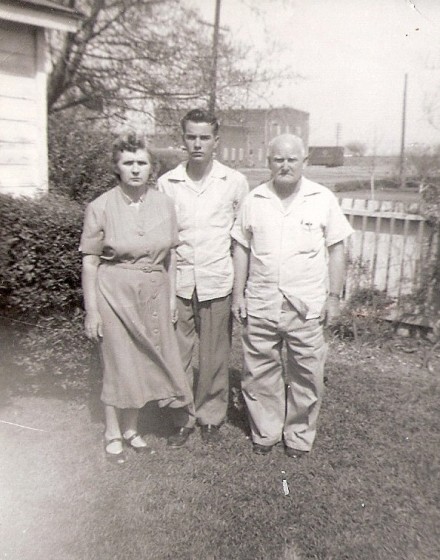
Excerpts from interview with Johnie Barefield, son of Lula Selena Walls. Interview conducted by Joe Manning on November 2, 2012.
“I’m the baby. I was born in 1940. I was amazed and thrilled to see the pictures of my mother. I had never seen a picture of her at that age. I knew that she worked in the cotton mill, but I didn’t know that she worked there when she was 12 years old. It’s hard to believe that they had children that young working there. That’s hard work.”
“My mother was a wonderful person. She was very sweet, very gentle, very kind. We lived about a block from the railroad tracks, and I can remember hoboes coming up and knocking on the door and asking for food. Even though we didn’t have a lot to eat ourselves, she would make them a sandwich and have them sit out in the back yard. She was always willing to share whatever she had.”
“When I was in school, I can remember drawing little pictures, and my mom would praise me and tell me they looked like something, even when they didn’t. She was very encouraging in anything I wanted to do, and in anything that I did. My father was a wonderful man. I respected him very much. As a matter of fact, I named my son after him.”
“When we moved into the house I grew up in, it was just a little frame house. It had just single walls, no inside walls. Later on, my brother and I put sheetrock in it. It didn’t have an inside toilet. It only had one bedroom. They finally added two bedrooms, a back porch, a room on the front, and indoor plumbing.”
“My parents didn’t have a bunch of friends. The only people that they really socialized with were family. My dad worked all the time. He worked nights and slept during the day. He worked at the oil mill, which was right across the street from our house. It was hard for them to get out and go anywhere.”
“Most of my memories of my mother are when she was incapacitated. She had stroke after stroke after stroke. She went to a rest home for a while, then Dad took her out and tried to take care of her and he just couldn’t do it. His health was going downhill. She was totally an invalid. She couldn’t do anything for herself. He finally just gave up and let her go to the rest home, and he went in there, too, so he could still be with her. I loved my mother and father very much.”
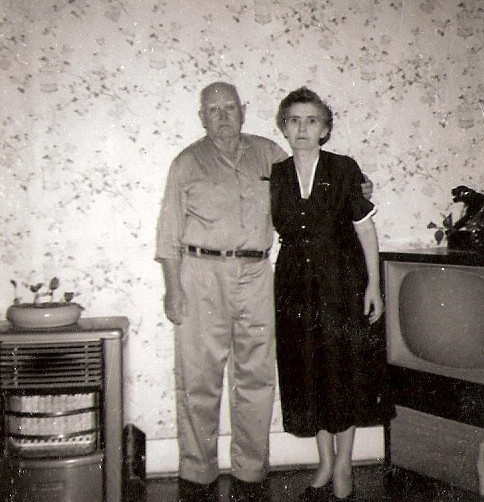
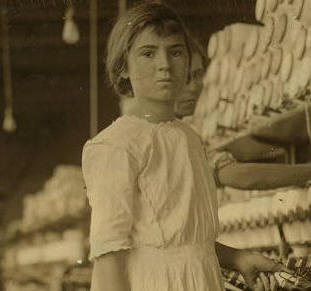
Lula Selena Walls: 1901 – 1979
*Story published in 2012.
